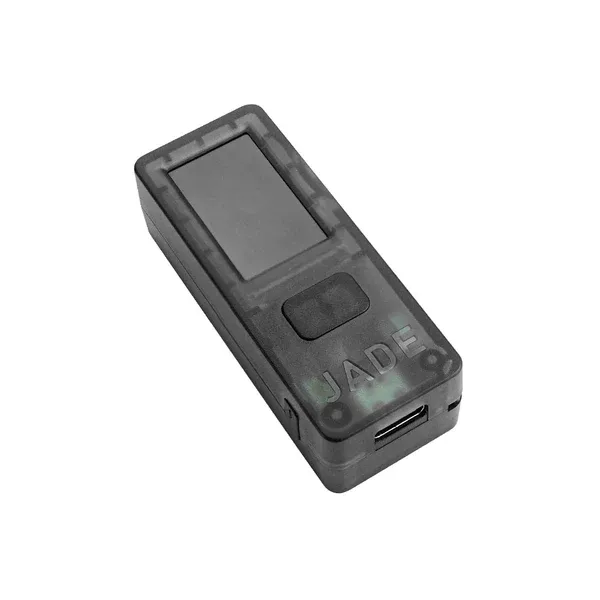
Blockstream a company founded in 2014 by Adam Back, is one of the leading providers of blockchain technologies with a focus on Bitcoin's blockchain. Among their projects is Liquid Network — a Bitcoin layer-2 enabling the issue of security tokens and other digital assets. Recently, a new Jade — hardware open–source wallet for Bitcoin and Liquid_BTC has been added to the company’s portfolio.
On May 12, a link to the technical review of the product appeared on Blockstream’s Twitter. Also, the developers said that the new wallet will be inexpensive and secure.
So far, only the first part of the technical review has been released. Blockstream writes that there will be limited wallets that they will release gradually. So what’s interesting in the first part?
To create attack-resistant keys, several systems will be used in the wallet at once. While the wallet is enabled, entropy will be generated from user input, CPU counters, battery state, ambient temperature, and entropy from the Blockstream Green companion app.
Also, a Built-in cryptographic-strength hardware number generator will be used, which will receive entropy from various sources, one of which is radio. All generated entropy will accumulate in the Entropy Pool.
When you turn on the wallet for the first time, you will need to create a PIN. To make it impossible to calculate, Jade runs several components, thereby encrypting the data.
“To prevent physical attacks on a stolen Jade from extracting / stealing coins, the seed is encrypted with random keys split between the Jade device and a lock-out server.”
When creating a new wallet recovery phrase, entropy is collected from the Entropy Pool. The resulting key material used for the recovery phrase is encrypted using the AES256 key.
“This data can only be decrypted when the user inputs the correct PIN on the Jade and establishes a connection with the remote PIN server, mediated by the companion app (e.g. Green). Since the server only has a part of the AES256 key, it is blinded to any of your wallet’s keys and the PIN used on the Jade. All data at rest is encrypted on the server.”
In addition to all of the above, Jade has an “Anti-Exfil” system. Its essence is to prevent “a nasty undetectable attack that compromised hardware wallets can launch against their own users. ”Yes, there are such attacks. Their goal is to slowly leak the user’s private key(s) from the compromised wallet.
“Compromised hardware wallets could create a nonce that appears random but is not. The nonces could be known to an attacker ahead of time. Even worse, the hardware wallet could leak parts of the user’s master private key into individual nonces, which would allow the attacker to guess every private key given a sufficient number of signatures.”
Jade is also positioned as an affordable hardware wallet. It is currently offered at $46.
Per our review, at the time of writing this is the cheapest hardware wallet in the market.
- Trezor Model One — $77
- Trezor Model T — $280
- SafePal S1 — $50
- SecureX V20 — $139
- SecureX W20 — $119
- Ledger Nano S — $59
- Ledger Nano X — $149
- D’CENT Biometric Wallet — $119
Well, as for security, it will have to wait. Let’s see what else the developers will tell us in the following technical reviews. Also, it will be interesting to take a look at independent reviews. We are waiting and watching.

